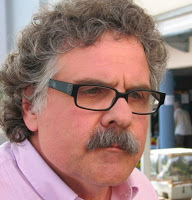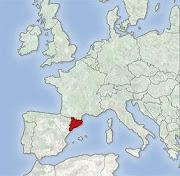After 75 years, Catalonia still awaits the return of the documents. Here three articles about this topic:
From Pillage to Reparation: The struggle for the Salamanca papers
It is a great pleasure to have been asked to talk to you today about the case of the so-called "Salamanca Papers". I greatly appreciate Professor Preston's invitation. I think that there are a couple of things I should say to introduce myself. I have only ever spoken in public in England once before. That was thirty-one years ago, in 1975, at a meeting held in Oxford in protest over the last death sentences decreed by the Franco regime. I hate to think what I must have said. I was born and brought up in England, my father having been a London-born ex-RAF pilot and my mother -still alive and kicking- the eldest daughter of a Catalan surgeon, Josep Trueta. Like several hundred thousand fellow Catalans and Republicans, he went into exile in February 1939, at the end of the Spanish Civil War. His exile in England was prompted not read more..
It is a great pleasure to have been asked to talk to you today about the case of the so-called "Salamanca Papers". I greatly appreciate Professor Preston's invitation. I think that there are a couple of things I should say to introduce myself. I have only ever spoken in public in England once before. That was thirty-one years ago, in 1975, at a meeting held in Oxford in protest over the last death sentences decreed by the Franco regime. I hate to think what I must have said. I was born and brought up in England, my father having been a London-born ex-RAF pilot and my mother -still alive and kicking- the eldest daughter of a Catalan surgeon, Josep Trueta. Like several hundred thousand fellow Catalans and Republicans, he went into exile in February 1939, at the end of the Spanish Civil War. His exile in England was prompted not read more..
A tale of two archives
As Viewpoint's Special Correspondent in Catalonia, I am moved to get into print a version of a talk I gave a few months ago to my old Department, the School of Modern Languages. The topic is one that I have been involved with a little over the past year or so, and it has given me reason to recall with nostalgia the exemplary manner in which, over the past twenty years, the University has become a renowned repository of historical archives, thanks, in particular, to the initiative of former Vice-Chancellor John Roberts in obtaining the deposit of the Wellington Papers in the early 80s and to the vision, commitment and expertise of former Librarian Bernard Naylor and (still going strong) Archivist Christopher Woolgar. The Hartley Library is now a major centre for the study of 19th- and 20th-century British history and Anglo-Jewish relations. Contrast the way in which the owners of family and institutional papers have entrusted them to the expert care of the Hartley Library read more..
As Viewpoint's Special Correspondent in Catalonia, I am moved to get into print a version of a talk I gave a few months ago to my old Department, the School of Modern Languages. The topic is one that I have been involved with a little over the past year or so, and it has given me reason to recall with nostalgia the exemplary manner in which, over the past twenty years, the University has become a renowned repository of historical archives, thanks, in particular, to the initiative of former Vice-Chancellor John Roberts in obtaining the deposit of the Wellington Papers in the early 80s and to the vision, commitment and expertise of former Librarian Bernard Naylor and (still going strong) Archivist Christopher Woolgar. The Hartley Library is now a major centre for the study of 19th- and 20th-century British history and Anglo-Jewish relations. Contrast the way in which the owners of family and institutional papers have entrusted them to the expert care of the Hartley Library read more..
Salamanca Documents Not Yet Returned
 After years of non-compliance, the Spanish Minister of Culture promised that the Spanish State would return to Catalonia, by 30th June 2012, all the documents that were looted by Spain during the war and stored at the Spanish Civil War Archive in Salamanca. Months after this deadline, the documents that belong to individuals and to private organizations and were meant to be sent to the Catalan government never made it back. It seems history will repeat itself as with the previous shipment promised by the Spanish Minister of Culture under Spanish president Zapatero, when everything was ready for the return of the documents and the Spanish administration stopped the shipment.
After years of non-compliance, the Spanish Minister of Culture promised that the Spanish State would return to Catalonia, by 30th June 2012, all the documents that were looted by Spain during the war and stored at the Spanish Civil War Archive in Salamanca. Months after this deadline, the documents that belong to individuals and to private organizations and were meant to be sent to the Catalan government never made it back. It seems history will repeat itself as with the previous shipment promised by the Spanish Minister of Culture under Spanish president Zapatero, when everything was ready for the return of the documents and the Spanish administration stopped the shipment.
 After years of non-compliance, the Spanish Minister of Culture promised that the Spanish State would return to Catalonia, by 30th June 2012, all the documents that were looted by Spain during the war and stored at the Spanish Civil War Archive in Salamanca. Months after this deadline, the documents that belong to individuals and to private organizations and were meant to be sent to the Catalan government never made it back. It seems history will repeat itself as with the previous shipment promised by the Spanish Minister of Culture under Spanish president Zapatero, when everything was ready for the return of the documents and the Spanish administration stopped the shipment.
After years of non-compliance, the Spanish Minister of Culture promised that the Spanish State would return to Catalonia, by 30th June 2012, all the documents that were looted by Spain during the war and stored at the Spanish Civil War Archive in Salamanca. Months after this deadline, the documents that belong to individuals and to private organizations and were meant to be sent to the Catalan government never made it back. It seems history will repeat itself as with the previous shipment promised by the Spanish Minister of Culture under Spanish president Zapatero, when everything was ready for the return of the documents and the Spanish administration stopped the shipment.
Yet hundreds of boxes full of documents are pending return. For this reason, when on the 26th of April the Spanish Minister of Culture told his Catalan peer that the documents, filed as “war booty” in the General Spanish Civil War Archive in Salamanca, would be returned before the 30th of June, we breathed a sigh of relief.
After facing year after year of non-compliance and delays, Mr. Wert's words were welcome. In this context, it must be taken into account that the last Minister of Culture read more..



























